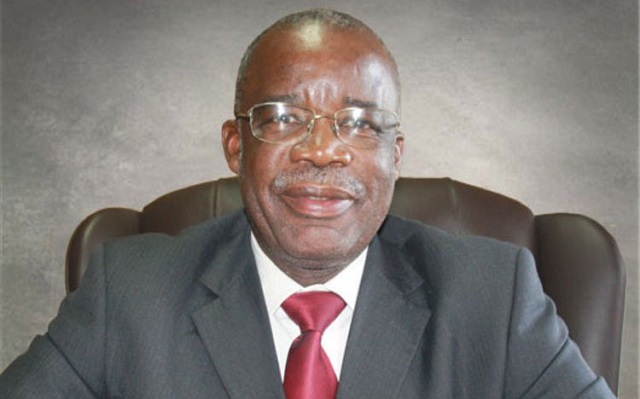Heat on mines ministry perm sec over illicit diamond deals

Pamela Shumba, Senior Reporter
THE Parliamentary Portfolio Committee on Mines and Energy has urged the Civil Service Commission (CSC) to recall the Permanent Secretary in the Ministry of Mines and Mining Development Professor Francis Gudyanga for allegedly aiding illicit financial outflows in the diamond mining sector.
The committee expressed concern over political interference in the mining of diamonds in the country, saying it had a negative impact on operations in the sector.
Presenting a report on the consolidation of diamond mining companies in Parliament on Tuesday, the chairperson of the committee, Dr Daniel Shumba, who is also the MP for Masvingo Urban, said the country would not be able to realise meaningful returns from the sector if the system is abused.
“The CSC should recall Professor Gudyanga in line with section 205 of the Constitution. The grounds for dismissal include his role in aiding illicit financial outflows, poor corporate governance and at times his position has been conflicted.
“The Committee has noted with concern that there is too much political interference in the mining of diamonds in Marange, particularly by Professor Gudyanga. Without a proper legal framework which outlines the responsibilities of the various State actors in the diamond sector, the current system is porous and being abused. As a result, the country will not be able to realise meaningful returns from the sector,” said Dr Shumba.
He said while the diamond policy outlines Government’s vision in the diamond sector, it is not binding on anyone.
“It’s unacceptable that the Secretary of Mines is directly involved in operational issues at Zimbabwe Consolidated Diamond Company (ZCDC), Minerals Marketing Corporation of Zimbabwe (MMCZ), Zimbabwe Mining Development Corporation (ZMDC) and at other institutions that are directly linked to the mining industry.
“The workload is too heavy for one person and this has a negative impact on operations of some of these entities,” said Dr Shumba.
He said the diamond industry in Zimbabwe needs to be supported by strong and consistent policies and a sound legal framework.
“This should also be buttressed by the observance of good corporate governance principles by the implementers of these policies and laws.
“In that way, Treasury and the country will be able to experience positive socio-economic returns from the diamond industry as being experienced in the neighbouring countries,” said Dr Shumba.
He said Zimbabwe was failing to benefit from its diamonds, unlike other countries.
“After the discovery of huge diamond deposits in Marange in mid-2000, the expectation was that diamond revenues would contribute significantly to Zimbabwe’s national development, but alas, it has been an equally huge disappointment.
“This sentiment was expressed in the 2016 National Budget Statement by the Minister of Finance and Economic Development Patrick Chinamasa. He stated that this is a resource that seems to have not benefited the generality of our people,” said Dr Shumba.
The diamond industry, he added, plays an important role in the socio-economic development of several African countries, given that 65 percent of the world’s diamonds, with an annual value exceeding $8,5 billion, are extracted on the continent.
“For instance, diamond revenues in Botswana enable all children up to the age of 13 to receive free education and in Namibia the sector contributes 40 percent towards the country’s annual export earnings and has had a positive socio-economic impact on the lives of African people,” said Dr Shumba.
The committee came up with several recommendations, among them the crafting of a Bill to regulate diamond mining operations.
The committee also recommended that any board appointments by ZMDC or by the Minister of Mines and Mining Development Walter Chidhakwa should be in line with sections 17 and 18 of the constitution which promotes fair regional representation and gender balance.
The ministry was urged to ensure that marketing of diamonds is centralised and is in the hands of the State. It was also urged to reinstate workers that were dismissed due to polygraph tests because the practice was not supported by the labour laws of the country.
@pamelashumba1











Comments